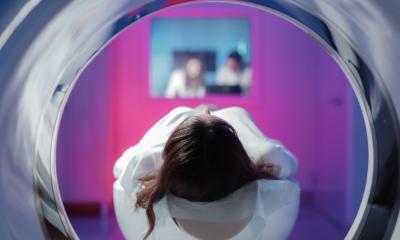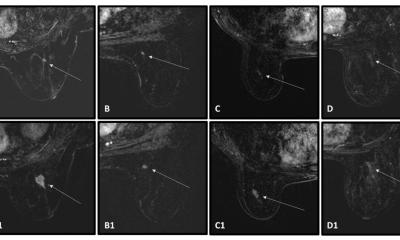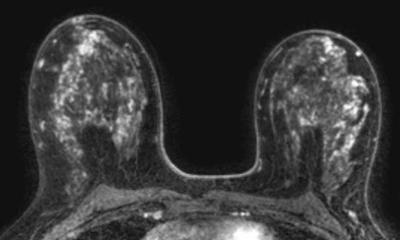Mammograms or MRI scans?
X-ray based mammograms detect only 56% of early lesions in high risk women compared with 92% when MRI scanning (mostly used for brain scans), according to a study by Christiane Kuhl and colleagues at the University of Bonn (pub: the Lancet. 8/07).
Almost all breast cancers begin with non-invasive cancerous cells in the milk ducts. ‘If you picked up all cases of ductal carcinoma in situ [DCIS] you’d prevent virtually all cases of breast cancer. Our finding that MRI is superior to mammography in detecting it turns things upside down,’ said Dr Kuhl.
During the study, 7,319 women were referred from screening programmes after they had breast cancer or had a family history of the cancer. After scanning, 167 women were diagnosed with DCIS, 92% through the MRI but only 56% by mammogram. In women with the most severe DCIS – most likely to lead to a diagnosis of breast cancer – MRI detected 98% and mammography 52%.
Due to costs and time, generally only younger women at high risk of breast cancer are offered MRI scans. However, there is also concern that more rigorous screening would over-diagnose a condition that, in around 75% of cases, does not lead to cancer.
Some specialists point out that the study was only based on a small sample of women, younger than 50-70 years old – a group in which MRI is more effective due to the denser breast tissue. Others suggest further studies be carried out.
During the study, 7,319 women were referred from screening programmes after they had breast cancer or had a family history of the cancer. After scanning, 167 women were diagnosed with DCIS, 92% through the MRI but only 56% by mammogram. In women with the most severe DCIS – most likely to lead to a diagnosis of breast cancer – MRI detected 98% and mammography 52%.
Due to costs and time, generally only younger women at high risk of breast cancer are offered MRI scans. However, there is also concern that more rigorous screening would over-diagnose a condition that, in around 75% of cases, does not lead to cancer.
Some specialists point out that the study was only based on a small sample of women, younger than 50-70 years old – a group in which MRI is more effective due to the denser breast tissue. Others suggest further studies be carried out.
30.10.2007
More on the subject:





